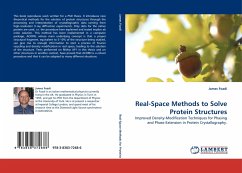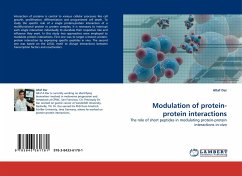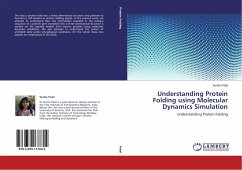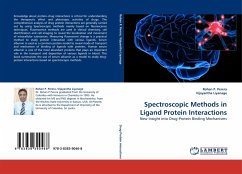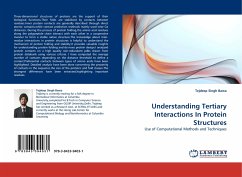
Understanding Tertiary Interactions In Protein Structures
Use of Computational Methods and Techniques
Versandkostenfrei!
Versandfertig in 6-10 Tagen
32,99 €
inkl. MwSt.

PAYBACK Punkte
16 °P sammeln!
Three-dimensional structures of proteins are the support of their biological functions.Their folds are stabilized by contacts between residues.Inner protein contacts are generally described through direct atomic contacts,while contact prediction methods mainly used inter-C distances. During the process of protein folding,the amino acid residues along the polypeptide chain interact with each other in a cooperative manner to form a stable native structure.The knowledge about inter-residue interactions in protein structures is helpful to understand the mechanism of protein folding and stability.I...
Three-dimensional structures of proteins are the support of their biological functions.Their folds are stabilized by contacts between residues.Inner protein contacts are generally described through direct atomic contacts,while contact prediction methods mainly used inter-C distances. During the process of protein folding,the amino acid residues along the polypeptide chain interact with each other in a cooperative manner to form a stable native structure.The knowledge about inter-residue interactions in protein structures is helpful to understand the mechanism of protein folding and stability.It provides valuable insights for understanding protein folding and de novo protein design.I analyzed protein contacts on a high quality non-redundant pdbs drawn from protein databank using various criteria. I have computed the average number of contacts depending on the distance threshold to define a contact.Preferential contacts between types of amino acids have been highlighted. Detailed analysis have been done concerning the proximity of contacts in the sequence,the size of the proteins and fold classes.The strongest differences have been extracted,highlighting important residues.



